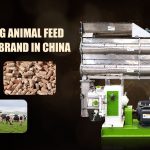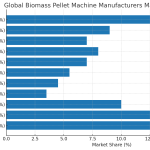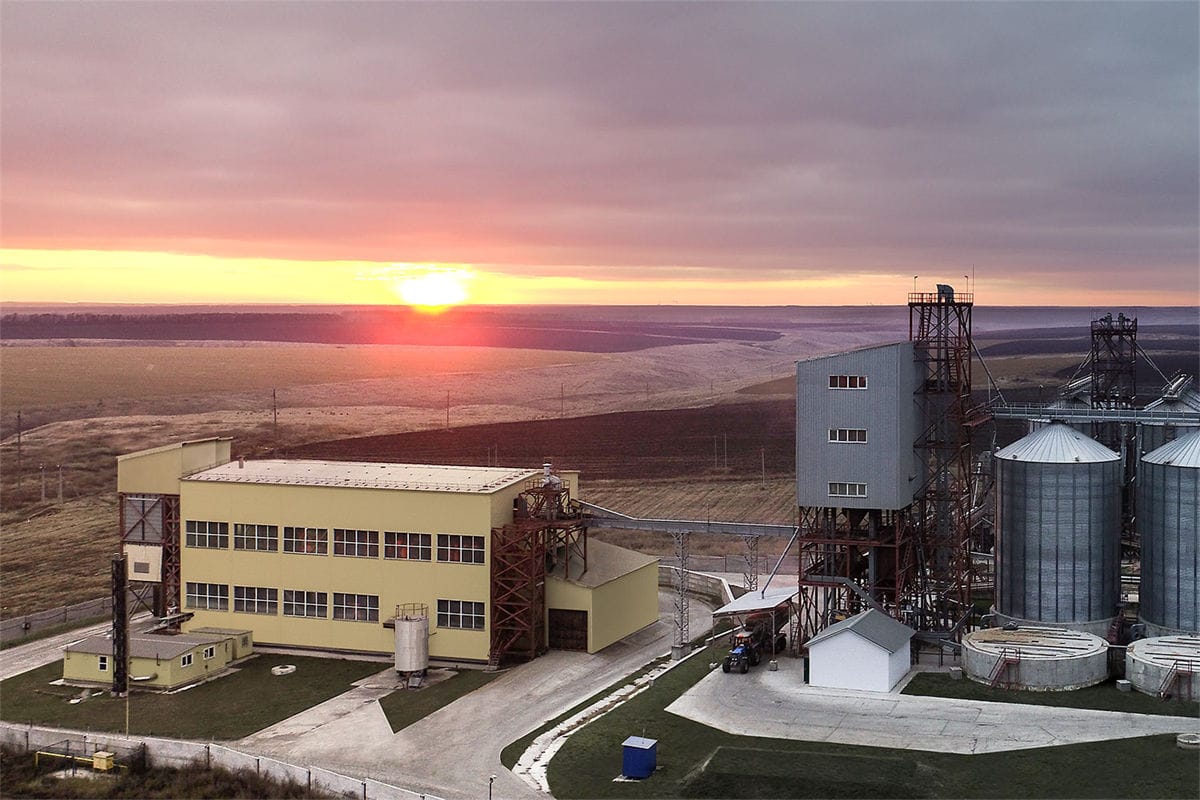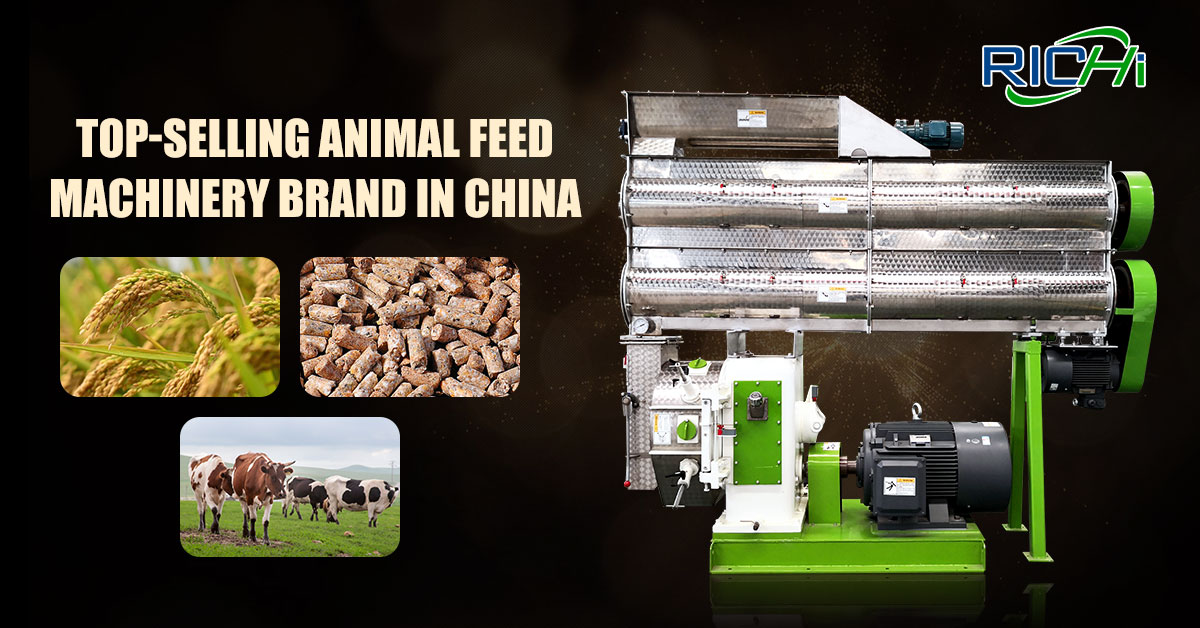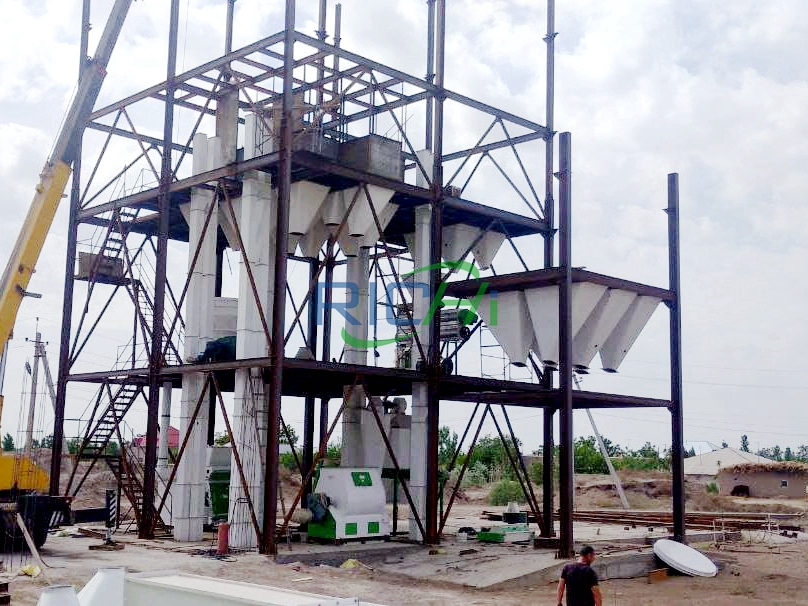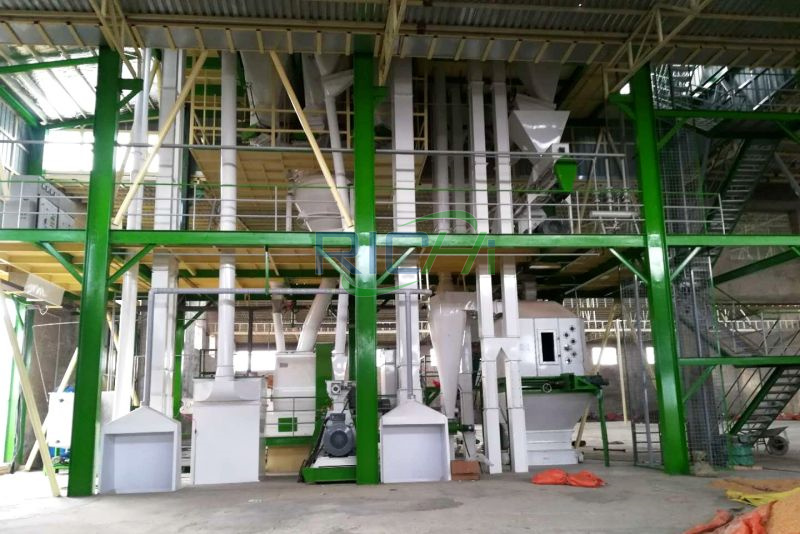Brazil, with its vast agricultural resources, booming livestock industry, and strategic position in the global food market, presents a compelling case for the establishment of animal feed production lines. As the world’s population continues to grow and the demand for animal protein rises, the need for efficient and sustainable animal feed production becomes increasingly critical. This article explores the feasibility of building an animal feed production line in Brazil, examining the opportunities, challenges, and key factors that would influence such an endeavor.
Leveraging Brazil’s Agricultural Powerhouse Status
Brazil’s position as an agricultural powerhouse provides a strong foundation for animal feed production:
- Abundant Raw Materials: Brazil is a leading producer of key feed ingredients such as soybeans, corn, and wheat. The availability of these raw materials in close proximity reduces transportation costs and ensures a stable supply chain.
- Established Agricultural Infrastructure: The country boasts well-developed agricultural infrastructure, including storage facilities, transportation networks, and processing plants, which can support feed production operations.
- Expertise in Agriculture: Brazil has a wealth of agricultural expertise and a skilled workforce familiar with large-scale farming and food processing operations.
These factors contribute significantly to the feasibility of establishing an animal feed production line in the country.
Capitalizing on Brazil’s Thriving Livestock Sector
Brazil’s robust livestock industry presents a ready market for animal feed:
- Large Cattle Herd: Brazil has the world’s second-largest cattle herd, with over 214 million head as of 2021, according to the Brazilian Institute of Geography and Statistics (IBGE).
- Growing Poultry and Pork Industries: Brazil is a major global player in poultry and pork production, with both sectors experiencing steady growth.
- Expanding Aquaculture: The country’s aquaculture sector is rapidly developing, creating additional demand for specialized fish feeds.
The presence of a large and diverse livestock industry ensures a strong domestic market for animal feed products.
Tapping into Export Opportunities
Brazil’s strategic location and established trade relationships offer significant export potential for animal feed:
- Access to Global Markets: Brazil’s extensive coastline and well-developed ports facilitate exports to key markets in Europe, Asia, and the Middle East.
- Free Trade Agreements: Brazil’s membership in Mercosur and other trade agreements provides preferential access to various international markets.
- Reputation for Agricultural Exports: The country’s strong reputation in agricultural exports can be leveraged to market animal feed products globally.
These factors enhance the feasibility of an animal feed production line by expanding the potential customer base beyond domestic markets.
Technological Advancements and Innovation
Brazil’s commitment to agricultural innovation supports the establishment of modern feed production facilities:
- Research and Development: The country has strong agricultural research institutions, such as Embrapa, which can provide valuable insights and support for feed formulation and production technologies.
- Adoption of Precision Agriculture: Brazil’s agricultural sector is increasingly embracing precision farming techniques, which can be applied to optimize feed production processes.
- Growing Focus on Sustainability: There is a growing emphasis on sustainable agricultural practices in Brazil, aligning with global trends in sustainable feed production.
These technological and innovative aspects contribute to the feasibility of establishing a state-of-the-art animal feed production line.
Government Support and Regulatory Environment
The Brazilian government’s stance on agricultural development influences the feasibility of feed production projects:
- Agricultural Development Policies: Brazil has implemented policies to support agricultural growth and modernization, which may benefit feed production initiatives.
- Regulatory Framework: Understanding and navigating Brazil’s regulatory environment for feed production, including quality standards and safety regulations, is crucial for project feasibility.
- Investment Incentives: Some regions in Brazil offer incentives for agricultural investments, which could enhance the financial feasibility of a feed production project.
Careful consideration of the regulatory landscape and available government support is essential in assessing project feasibility.
Challenges and Considerations
While there are numerous factors supporting the feasibility of building an animal feed production line in Brazil, several challenges must be addressed:
- Infrastructure Limitations: Despite improvements, some regions in Brazil still face infrastructure challenges, particularly in transportation networks, which could impact logistics and costs.
- Economic Volatility: Brazil’s economy has experienced fluctuations in recent years, affecting exchange rates and potentially impacting the cost of imported equipment or ingredients.
- Competition: The animal feed market in Brazil is competitive, with several established domestic and international players. A new entrant would need to differentiate itself to gain market share.
- Environmental Concerns: Balancing feed production with environmental conservation, particularly in sensitive areas like the Amazon, is a critical consideration.
- Water Availability: Some regions in Brazil face water scarcity issues, which could affect feed production processes that require significant water usage.
- Skilled Labor: While Brazil has a large workforce, finding and retaining skilled personnel for specialized feed production roles may be challenging in some areas.
Financial Feasibility and Investment Requirements
Assessing the financial feasibility of an animal feed production line in Brazil involves several key factors:
- Capital Investment: The initial investment for a modern feed production facility can be substantial, including costs for land acquisition, construction, and equipment procurement.
- Operational Costs: Ongoing expenses such as raw material procurement, energy costs, labor, and maintenance must be carefully projected.
- Market Pricing and Margins: Understanding the pricing dynamics in the Brazilian feed market and potential profit margins is crucial for financial planning.
- Financing Options: Exploring available financing options, including government programs, agricultural loans, and international investment, is important for project viability.
- Return on Investment (ROI): Conducting thorough ROI analysis, considering factors such as production capacity, market demand, and projected growth, is essential for assessing long-term feasibility.
Strategies for Enhancing Feasibility
To improve the feasibility of building an animal feed production line in Brazil, consider the following strategies:
- Strategic Location Selection: Choose a location that balances proximity to raw materials, target markets, and necessary infrastructure.
- Phased Implementation: Consider a phased approach to production line establishment, starting with a smaller capacity and expanding as the market position strengthens.
- Partnerships and Collaborations: Explore partnerships with local agricultural cooperatives, research institutions, or established feed companies to leverage existing networks and expertise.
- Focus on Specialization: Identify niche markets or specialized feed products that may offer higher margins and less direct competition.
- Sustainability Integration: Incorporate sustainable practices and technologies in feed production to align with global trends and potentially access premium markets.
- Vertical Integration: Consider opportunities for vertical integration, such as developing relationships with livestock producers or investing in raw material production.
Conclusion: A Promising Yet Complex Endeavor
Building an animal feed pellet production line in Brazil presents a promising opportunity, given the country’s agricultural strengths, thriving livestock sector, and potential for both domestic and export market growth. The feasibility of such a project is supported by Brazil’s abundant raw materials, established agricultural infrastructure, and growing emphasis on technological innovation in the agricultural sector.However, the feasibility is also tempered by challenges such as infrastructure limitations in some regions, economic volatility, intense competition, and environmental considerations. Careful planning, thorough market analysis, and strategic decision-making are essential to navigate these challenges successfully.
Ultimately, the feasibility of building an animal feed production line in Brazil depends on a careful balance of these opportunities and challenges, along with a well-structured business plan that addresses the specific market conditions, regulatory requirements, and operational considerations unique to the Brazilian context.For investors and companies considering such a venture, conducting comprehensive feasibility studies, engaging with local experts, and potentially pursuing strategic partnerships could significantly enhance the prospects of success. With the right approach and execution, establishing an animal feed production line in Brazil could not only be feasible but also highly rewarding, contributing to the country’s agricultural development and meeting the growing global demand for animal feed products.
